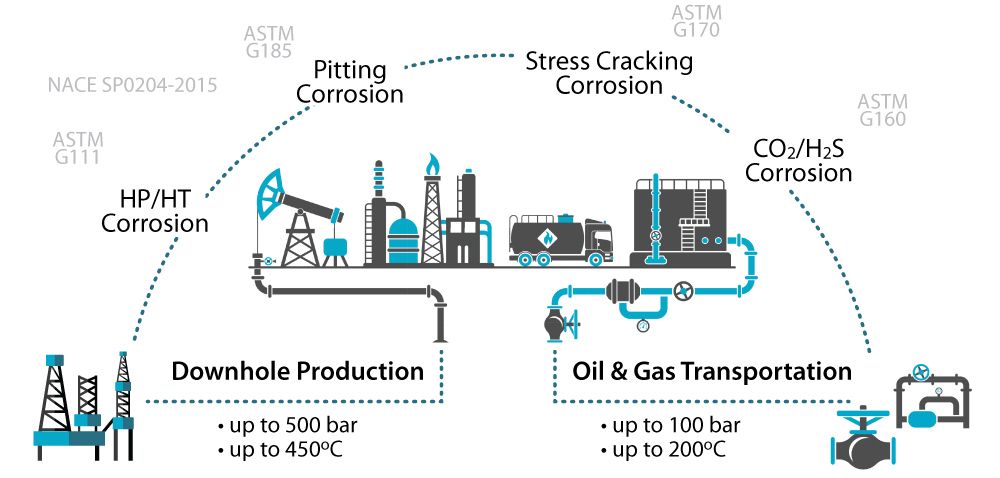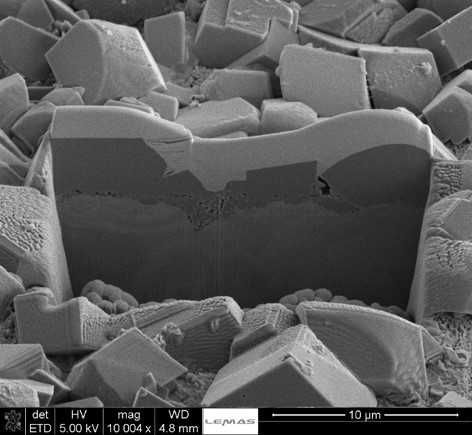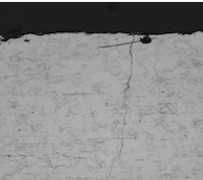Corrosion testing in CO2 and H2S Environments
In the oil and gas industry, materials are often exposed to extreme high pressure and temperature conditions and aggressive environments containing chlorides, carbon dioxide (CO2), hydrogen sulfide (H2S) and strong acids. The selection of the testing environments for material evaluation or inhibitor performance depends entirely upon the intended application of the material of interest and corrosion concerns in the field. Production and transportation environments are continuously fluctuating across the oil and gas network and the concentrations of CO2, H2S, and chloride vary considerably.


During oil and gas production, the presence of an aqueous phase in the production fluid increases the risk and severity of corrosion attack, damage and catastrophic failure of the equipment and materials used throughout the industry. Such threat is induced in severe service environments in the presence of sour gas, highly water cut oil wells and high temperatures and pressures.
In order to minimise and prevent corrosion related failures, it is important that the materials selected for use of operation in such environments (in the presence of CO2, H2S, Cl-, water) undergo a rigorous corrosion testing programme in order to evaluate the perform and ability to resist corrosion.
The most important parameters to consider and have full control of when performing corrosion tests are:
- Partial pressure of the reactive gas (CO2, H2S)
- Overall system pressure
- Temperature
- Chloride content
- Oxygen levels
- The aqueous phase properties, such as pH,alkalinity, conductivity, and osmotic pressures
- Synthetic brine composition (NaC1, Ca2+, Mg2+)

Our Autoclaves can help with your research needs to evaluate:
- Localised corrosion (pit/crevice initiation and propagation) and understanding the precursors to localised corrosion in CO2 and/or H2S containing environments
- Evaluating protective (or unprotective) corrosion product (FeS, Fe3O4, FeCO3, Fe2(OH)2CO3, CaCO3) formation kinetics, durability and corrosion mechanisms in CO2 environments (or CO2 + H2S environments)
- High temperature/High pressure corrosion
- Intergranular corrosion is acidizing environments
- Inhibitor efficiency, mechanisms and interactions with corrosion products in CO2 environments
- Depassivation and repassivation of Corrosion Resistant Alloys (CRAs)
Our future product range under development will help to determine:
- Sulfide Stress Corrosion Cracking mechanisms in H2S environments
- Corrosion as a result of Hydrogen permeation in H2S environments
- Top of line corrosion
- Erosion-corrosion (Sand erosion and impact kinetics/velocities) in CO2 environments
- Under-deposit corrosion
- The effects of pre-corrosion on Inhibitor efficiency and performance
- Protective film composition in real-time
Different standards for corrosion testing have been developed depending upon the conditions found in the location of the production site. A full list of relevant standards for use within LBBC Baskervilles autoclaves can be found here.